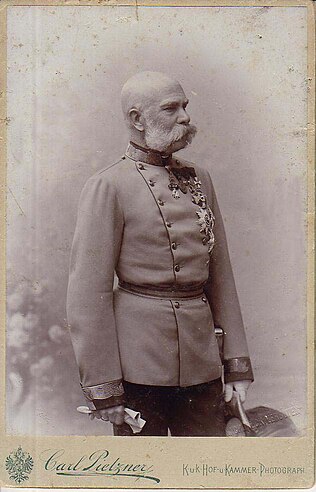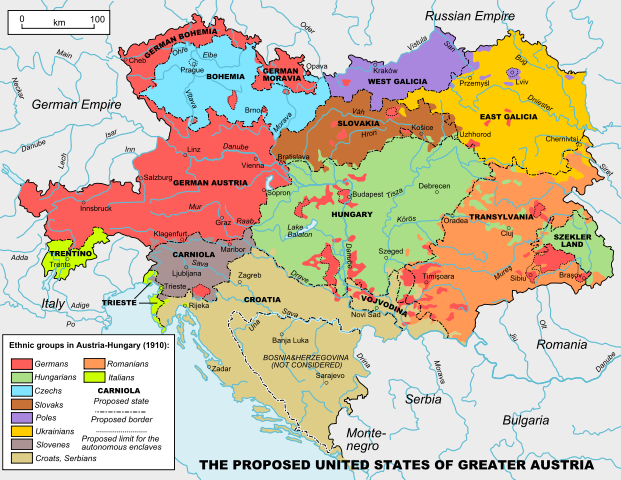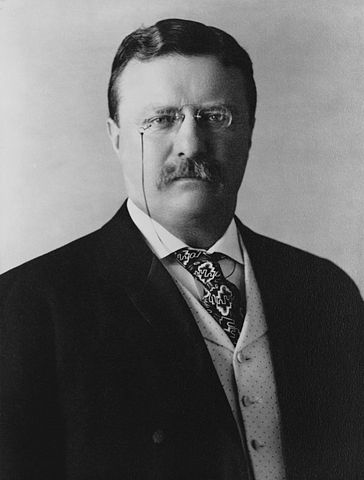Part IV – 1904: Foundations of a Fall
The aftershocks of Quisqueya's reunification with Spain would be felt in many places, particularly in the United States. President Bryan, a devout pacifist, had yet to carry out any activity against “Spain's unlawful grab at our American brothers” beyond formal protests and unwillingness to recognise the change, and a good part of the public was being whipped into a frenzy by the sensationalist press, which was inventing several stories about the fate of Quisqueya in the aftermath of the vote. This, combined with his inability to push through several of his promised policies, such as Free Silver or Prohibition, due to the opposition of the Republican-dominated Senate, ensured that his earlier popularity would start to drop as the year passed.
Meanwhile, the people of Quisqueya were ignoring the American yellow press inventions and concerned with far more pressing matters, such as the election of their governor, their first foral parliament and their first deputies and senators in Madrid. It was not a surprise when the first Governor of Quisqueya was Juan Tapia de la Riba, of the Partido Demócrata-Radical, given that it was them that had made the greatest mark in the island, but the situation in everything else was pretty balanced between the two main parties, with the addition of several members of the Quisqueyan Regionalist Party to the foral parliament.
The elections themselves were another watermark in the history of Spain, for women were allowed to vote in them for the first time. In a world where most democratic nations completely restricted women access to the political system – of course, dictatorships and absolutist monarchies had no access at all – Spain was a shining light for all the suffragist movements around the world, particularly in the United Kingdom and the United States, where women started to protest for the lack of rights.
The important event of the year, though, took place elsewhere: May 22nd, Vienna. Karlskirche was hosting Pentecost Mass, and Emperor Franz Josef, as expected, would attend it with his family, including his nephew and heir, Archduke Franz Ferdinand. Ever since his wife's death five years ago, giving her last breath in her rooms in Schönbrunn Schloss – some said she had died of a broken heart after her only son's suicide – one of the few refuges he had had from his sadness over so many losses was religion, and he attended mass every Sunday. And, as with all other important festivities, he did so at the Imperial Church, Karlskirche.
However, this time would be completely different from all others. As the Austrian Emperor started to walk the way between his royal carriage and the church's gates, several gunshots rang out and bullets flew across the air. One of the Emperor's personal guards was struck in the shoulder, a second on the ear and, to the horror of everyone, the Emperor himself on the chest.
For a second, the entire square went silent, and then panic as the people's minds caught up with what had just happened. While the Emperor's personal guard tried to stop the bleeding in the Emperor's chest, several of the soldiers and constables that had been present started to seek the shooter, who had obviously hid himself among the public to carry out his execrable attack. It was one sharp-eyed constable that saw a man carrying a rifle while running away along the rest of the civilians, and several men gave chase, trying to capture the attacker and ensure he was punished. It took an hour and a half, and when they reached the man a shoot-out ensued: two more men died before the kingslayer was finally apprehended.
Because that was what he had become: already a difficult thing to survive if he had been a youth full of life, the Emperor's 74 years of age weighed on him too much, and he was unable to resist the shock of the attack and the loss of so much blood: Franz Josef I of Austria died before his personal doctor was able to act in such a way that might have saved his life.
The kingslayer turned out to be Edvárd Kovač, a Hungarian nationalist that formed part of a group of like-minded people that had decided striking against the Emperor and his heirs would be enough to prod his compatriots into an attempt to become independent. However, as Franz Ferdinand's carriage had run with some delay, he had decided to strike before the Emperor entered Karlskirche, hoping that it would be enough to bring the Dual Monarchy down and finally allow Hungary to become a nation on its own.
Franz Josef I of Austria (18 August 1830 – 22 May 1904)
The Emperor was buried three days later in the Imperial Crypt, next to his wife Elisabeth and his son Rudolf, after a solemn requiem mass that was attended by representatives of all the Crowns of Europe, and, most important of all, Franz Ferdinand, the heir to the Imperial Crown. A week later, after the period of mourning ended, he was crowned Emperor of Austria in Vienna, and three days later, King of Hungary in Budapest. Soon, Franz Ferdinand I of Austria-Hungary started to work on his plans for the Empire he ruled over. Much like his northern cousins, he decided that it was time to finally put an end to the absolutist reign that Franz Josef had upheld for his entire life. Unlike his uncle, Franz Ferdinand had understood that absolutism was at an end, and that if he did not listen to the people, he would end up losing everything. He would also start to plan for a way to change the circumstances of his marriage so that it would not be considered as morganatic any more, so that his wife Sophie would be able to be named Empress of Austria
He also started to lay the first bricks of what he hoped would finally put an end to what he thought was the great mistake of 1867, the compromise that had partially restablished Hungary's sovereignty, putting it on the same level as Austria. His antipathy for the Hungarians, now increased by the fact that they had murdered his uncle – not that he had shed many tears for him, given their great differences – and that they would have murdered him as well, ensured that he had the drive to push forward his project to federalize Austria-Hungary, which his counselor Aurel Popovici had nicknamed “United States of Greater Austria”.
The United States of Greater Austria plan
The first efforts to carry this out involved a meeting between the Austrian and Hungarian governments, two months after Franz Josef's death, where Popovici, at the behest of the Emperor, presented the plan. Naturally, the Hungarians were completely opposed to this plan, as it would curtail a good part of the power they held. Many arguments were held, with positions for and against the plan, and the discussion soon turned ugly. In the end, the Emperor called for a stop to the argument, telling the Hungarians that he cared not for their whining: he was their ruler, and if they did not want to collaborate, then he would appoint a new government that would do so.
The troubles of Austria-Hungary went mostly unnoticed by the other nations in Europe, and only at the highest levels of government was the crisis known, thanks to well-placed spies and moles in Vienna. The Germans were worried about this, as their neighbors to the south were in danger of suffering a catastrophe, and such a problem could not be allowed to happen. The Italians were mixed, for a collapse might allow them to claim Trento and other lands that they considered part of their country, but it also left them without a potential ally in a war. France and Russia, in the meantime, not only did they look towards it, but they were even considering the possibility of starting to send people to capitalize on it, wishing to take down one of the Germans' allies. Because war was close, any fool could see that, and any advantage they had, they would take gladly.
Meanwhile, at the other side of the ocean, the problems in Mexico, which were already big, exploded into rage: Porfirio's rule had been too long, and the people were fed up with the fact that all the good he had brought only benefitted a few people at the top of the food chain, while the rest of the people continued to live as they had years before, and at some points even worse. Thinking they had nothing to lose, they had started to organise, buying weapons in the United States or from other foreign nations, and, taking Porfirio by surprise, they started a rebellion in the north.
Ignoring the troubles to their north, the construction of the Nicaragua Canal continued unabated. The second lock had been finally installed after several delays and problems, but it was all good, and the expectation was that the canal would be finished within three years, at worst four.
This sparked the hastening of negotiations between the United States Government and Colombia: for 11 million dollars plus a yearly lease of $250,000, the United States would have control of the land for the canal and the chance to build it. They then spent even more money in buying everything the French had left behind, and the men behind the new project started to study the problem before them while making a calling for all men interested in this to join them in the “greatest work of engineering since the Pyramids”, as one journalist called it.
The canal soon became one of the issues in the incoming elections. Some considered it a complete waste of time and money that could be better spent on other issues, while others wondered if it might not have been better to find a way to make it cheaper to buy, and a few war hawks had even considered aloud that, perhaps, going to war might have worked better to ensure the canal became American. The Nicaragua Canal, Quisqueya, the start of an economic depression... all of it was piled up on President Bryan, and it became clear that, unless he managed to pull a rabbit out of his hat, he was done with.
That did not mean things were easy for the Republicans, either. Like sharks at the smell of blood, several politicians had jumped in the chance to oust Bryan from the Presidency. At least five candidates managed to make it to the national voting, and in the end it was Theodore Roosevelt, the most popular of the five, that was chosen, even though a good part of the Republican party leadership was wary of him due to his anti-corruption crusading and other issues that had kept them from allowing that to happen before. Henry Clay Evans was chosen as a way to balance the ticket.
On November 8th, the American people had to choose between the Republicans Theodore Roosevelt and Henry Clay Evans on one side, and the incumbent President and Vice-President, William Bryan and Arthur Sewall on the other side. In that day, Roosevelt and Evans end up getting 343 EV and 33 states over Bryan's 133 EV and 12 states, winning the Presidency, which he would be sworn in on the following March 5th.
Theodore Roosevelt, 26th President of the United States of America
The accession of Roosevelt to the White House promised not a few problems in the future: given his patriotism, he was unlikely to actually to take any insult – or anything that might be construed as such – laying down... and that did not bode well for Spain.
 .
.

